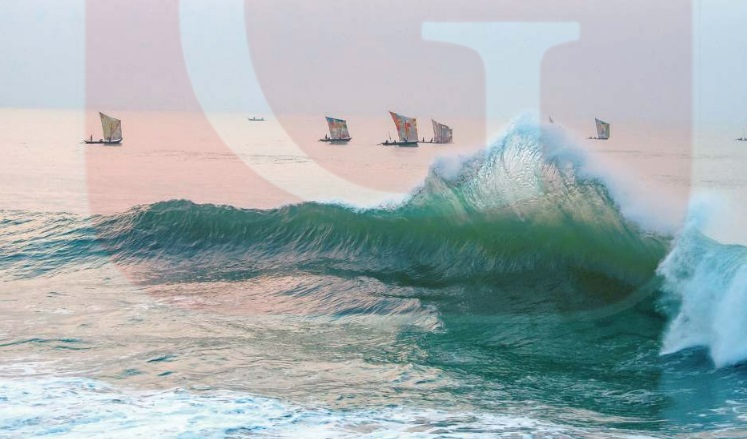The ocean, also known as the sea,refers to a body of salt water that covers approximately 70.8% of the Earth and contains 97% of Earth's water.
The term also refers to any of the large bodies of water into which the world ocean is conventionally divided.
There are five different areas of the ocean: The Pacific is the largest, followed by the Atlantic, Indian, Southern, and Arctic.
The United Nations General Assembly, by its resolution 63/111 of December 5, 2008, designated June 8 of every year as World Oceans Day.
The concept was originally proposed in 1992 by Canada's International Centre for Ocean Development (ICOD) and the Ocean Institute of Canada (OIC) at the Earth Summit –United Nations Conference on Environment and Development (UNCED) in Rio de Janeiro, Brazil.
The Ocean Project started global coordination of World Ocean Day starting in 2002. World Oceans Day was officially recognised by the UN in 2008.
The international day supports the implementation of worldwide Sustainable Development Goals (SDGs).
The celebration also reflects the importance of the ocean for all life forms on earth and fosters public interest in the protection of the ocean and the sustainable management of its resources sources.
The theme for this year’s celebration is ‘Planet Ocean: Tides Are Changing’. In Ghana, the government through the Ministry of Environment, Science,Technology and Innovation (MESTI) and the Environmental Protection Agency (EPA), in collaboration with key stakeholders called up on individuals, institutions and communities to unite ineffectively managing, protecting and sustaining our ocean to achieve a bluer and better lifestyle.
A statement issued by the MESTI affirms the need to generate a new wave of excitement towards cherishing and protecting our ocean and blue planet since the “ocean tides are changing
![]()

